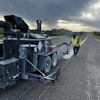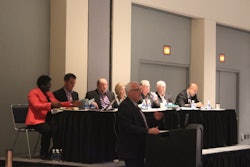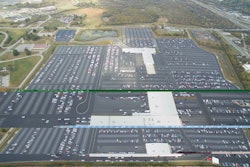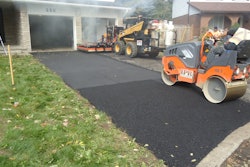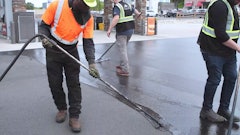Count members of the Pavement Coatings Technology Council (PCTC) among the large number of Americans who are frustrated – angry even – by the glacial pace of the federal government. PCTC first filed its Freedom of Information Act (FOIA) request in 2010, but the paperwork and the fees weren’t good enough for the US Geological Survey until March 2011. The principal reason for the request, followed by a lawsuit, was to obtain the data underlying the USGS studies of refined coal tar-based sealant (RTS). Access to that data is one of the few avenues PCTC has to defend RTS. Five years later, the USGS continues to withhold data. PCTC expects that a decision will be reached by the judge overseeing the FOIA lawsuit in 2016.
In 2013, PCTC challenged the USGS to correct information it has published in print and online. The challenges are based on the USGS Information Quality Guidelines (IQGs). The USGS responses in 2014 were wholly inadequate, essentially claiming that because the USGS studies were published they must be of high quality. PCTC appealed. After two years of waiting, USGS is leading PCTC to believe that a response will be received in 2016. In a recent article in the Huffington Post, retired UC Berkeley biology professor Corey Goodman described how the USGS and its sister organization, the Bureau of Reclamation, covered up scientific misconduct in two different disputes. Dr. Goodman looked into the process used by the Department of the Interior to investigate the complaints, concluding that the process…
provides no transparency, timeliness, and truly independent review. Second, it fails to deal with agency conflicts of interest. Third, it has no requirement to correct egregious errors. And fourth, it provides no accountability - no way to appeal decisions either administratively or in the courts.
Recently, it has also come to light that the USGS is also involved in a controversy about its claims about Polar Bears. With these precedents, there is no reason to believe that the USGS will fairly assess PCTC’s complaints, which is one reason PCTC has been educating Congressional staff about the problems with the USGS. This work will continue in 2016.
In 2014, PCTC challenged the Environmental Protection Agency (EPA) to correct information it has published on its web site that is based on USGS studies that have been demonstrated to be problematic. EPA finally responded in a completely inadequate way in January 2016. Even though the process suffers from problems similar to those described by Professor Goodman at the Department of the Interior, PCTC plans to appeal EPA’s response.
It is now routine every year that proposals to ban RTS are introduced at the town or county or state level in different parts of the country. When PCTC knows about proposed bans ahead of time, it has always supported local efforts to defeat the bans. In 2016, PCTC again asks sealcoaters to keep an eye out for proposed bans in your area and let us know. As was predicted years ago, pro-ban activists are no longer content to just ban RTS. PCTC is aware of at least one community has passed an ordinance that may impact asphalt-based sealants as well. Help PCTC help your business by watching and listening in your part of the world.
For more about PCTC visit www.pavementcouncil.org.



